On 19th May 2025, at the Hilton Hotel, Addis Ababa, Ethiopia, stakeholders, led by the Department of Agriculture, Rural Development and Blue Economy (DARBE) of the African Union Commission, launched the African Soil Information System (AfSIS).
The launch marks a significant milestone in managing the continent’s most valuable production asset: African soils. For years, various efforts have been made to build soil information systems across the continent. However, these efforts often resulted in fragmented data collected using inconsistent formats, sampling techniques, and analysis methods. The data were simply not interoperable, limiting their utility and contribution to agricultural development and ecological services.
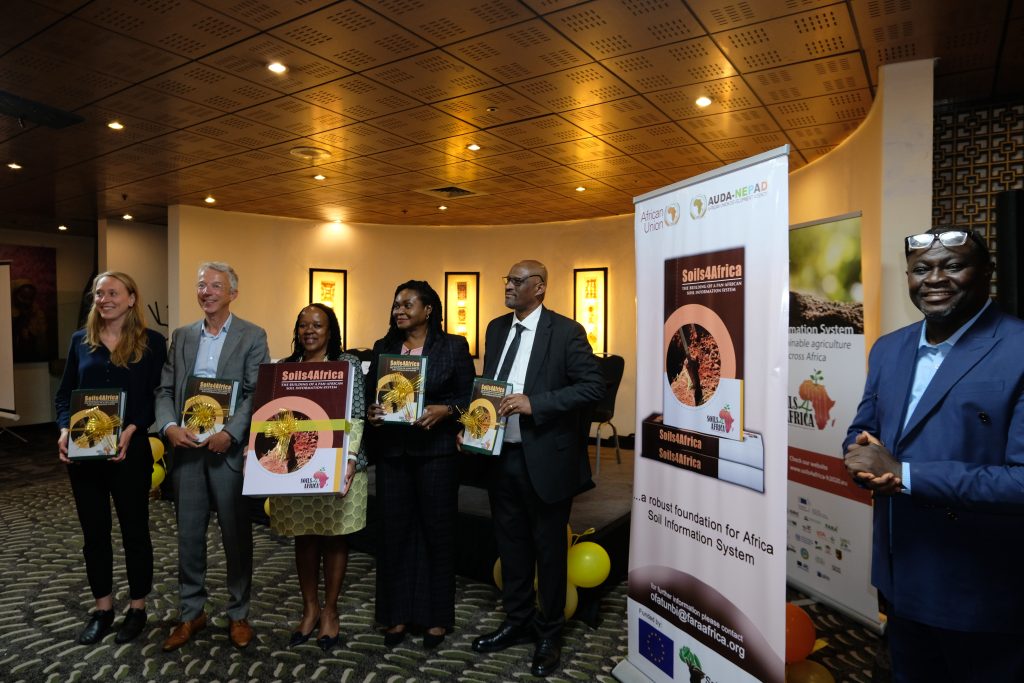
The Soils4Africa Project, implemented by 17 organizations drawn from Africa and Europe and supported by the European Union under the Horizon 2020 funding instrument, has laid the groundwork to fulfill the African vision of having its own soil information system. The project partners have developed a robust soil sampling methodology, protocol, and analysis method over the last five years. They have collected soil samples from 33 African countries, analyzed the data, and developed the African Soil Information System. This system serves as the launchpad for a more robust platform entrenched in the Soil Initiative for Africa (SIA) and the Africa Fertilizer and Soil Health Action Plan, tailored to meet all the identified needs for a soil information system in Africa.
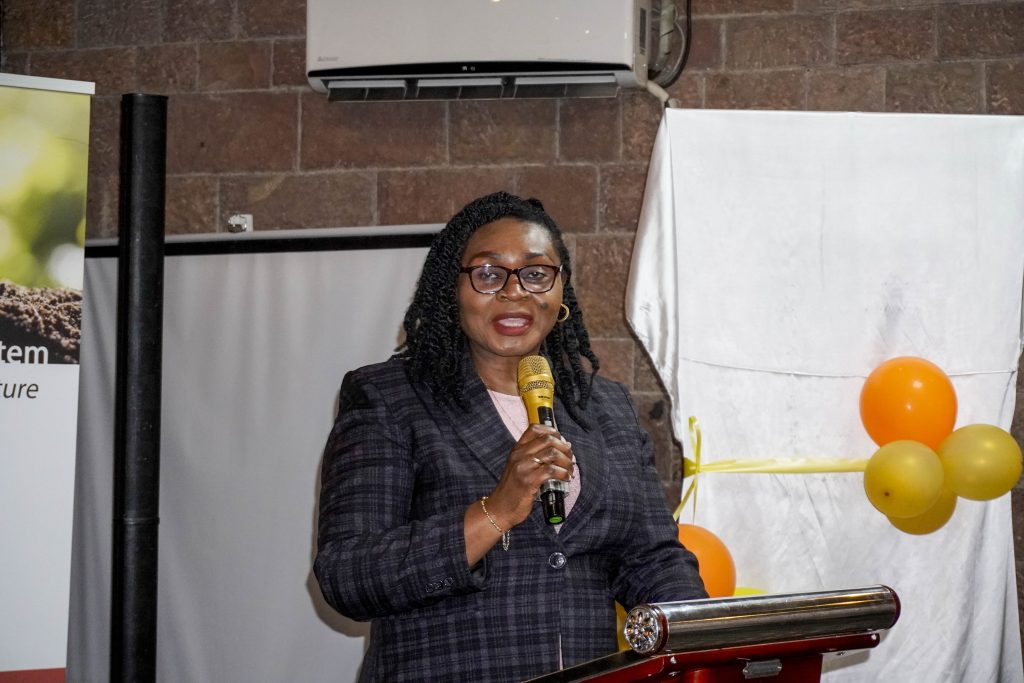
Dr. Janet Edeme, Head of Rural Development Division & Acting Head of Agriculture, African Union Commission
In a keynote address delivered on behalf of His Excellency Moses Viliakati, the Commissioner for DARBE, by Dr. Janet Edeme, Head of the Rural Development Division and Acting Head of Agriculture at the African Union Commission, he reiterated the urgent need for a fully functional soil information system to inform policy decisions on land use, investment in fertilizer manufacturing, blending, and use, as well as effective soil management. He emphasized the need for Africa to build on existing strong foundations—as exemplified by the Soils4Africa project—rather than reinventing the wheel.
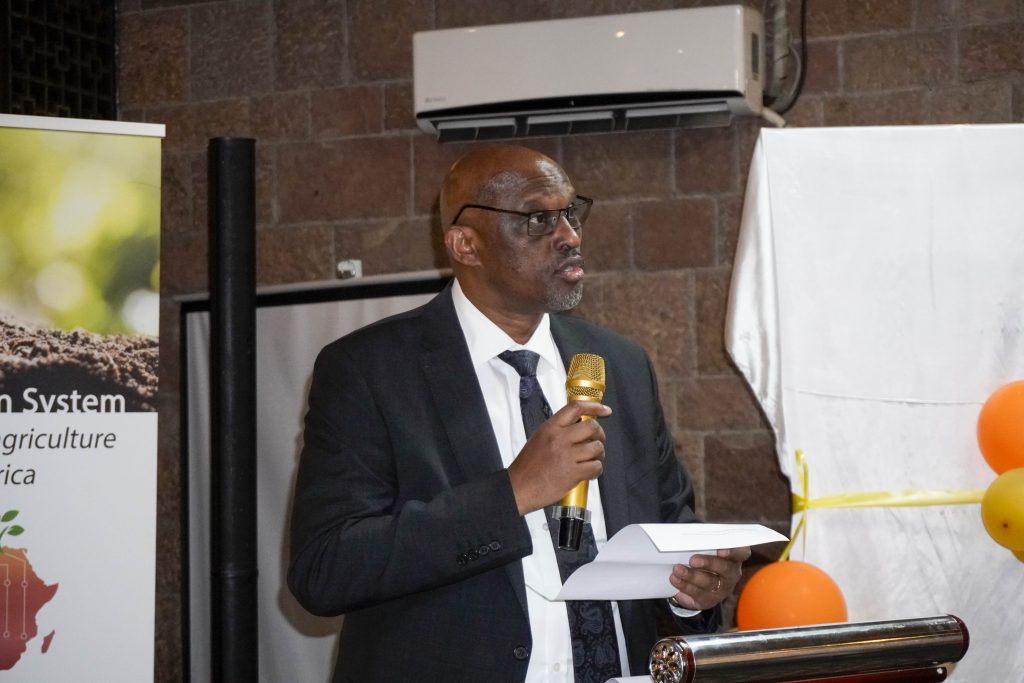
Professor Ayasu Elias, State Minister for Agriculture, Ethiopia
Professor Ayasu Elias, the State Minister for Agriculture in Ethiopia, emphasized the importance of a reliable soil information system in agricultural development. He highlighted Ethiopia’s progress in utilizing its national soil information to drive notable successes in the country’s agricultural sector.
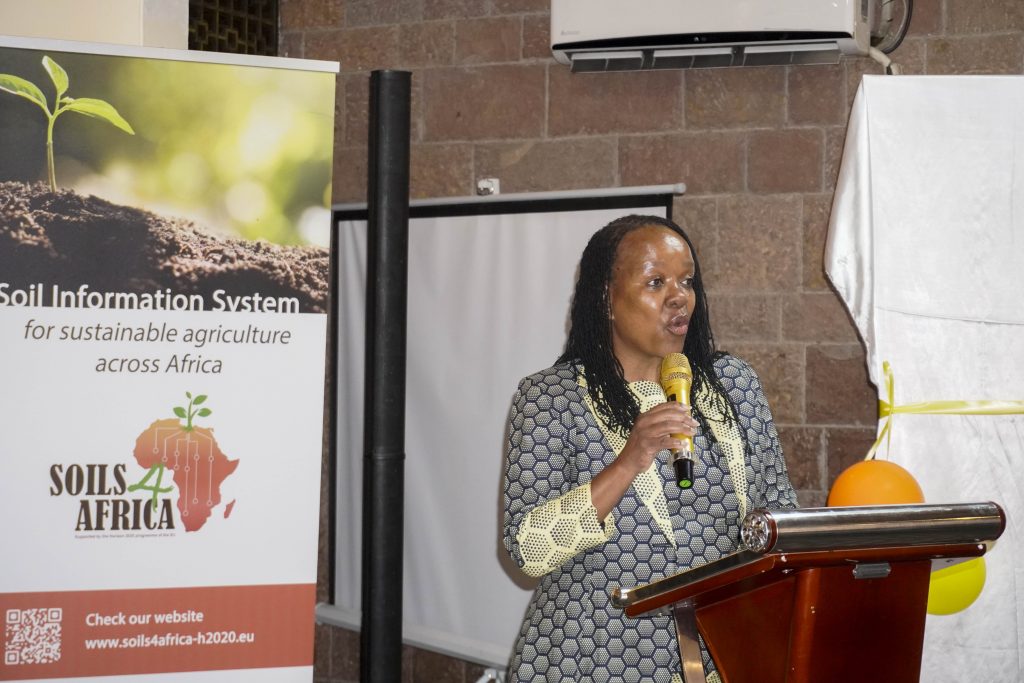
Ms. Bongiwe Njobe, Chair of the Forum for Agricultural Research in Africa (FARA) Board of Directors
Madam Bongiwe Njobe, Chair of the Forum for Agricultural Research in Africa (FARA) Board of Directors, also underscored the role of soil information systems in developing localized fertilizer blends and guiding efficient fertilizer use across Africa. She called on African stakeholders to “jealously guard” the system and ensure its full utilization.
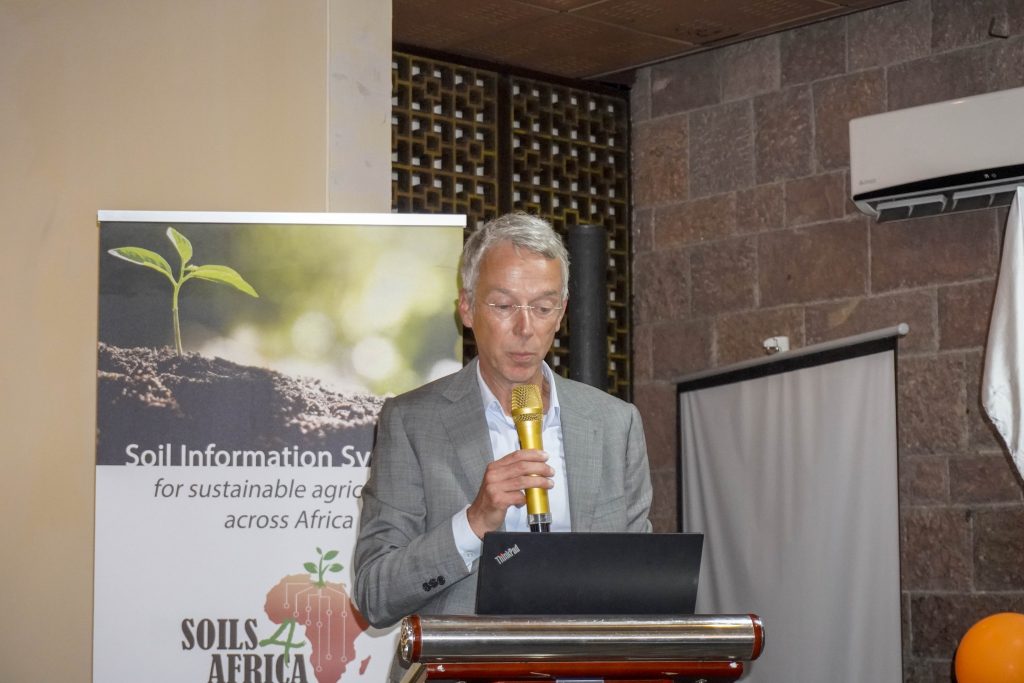
Rik van den Bosch, Director General of ISRIC – World Soil Information
Rik van den Bosch, Director General of ISRIC – World Soil Information, highlighted ISRIC’s global leadership in soil data and its role in supporting continents, including Africa, in building robust soil information systems. He noted that African soil data belongs to Africa; it should be hosted by an African organization and developed in line with Africa’s interests.
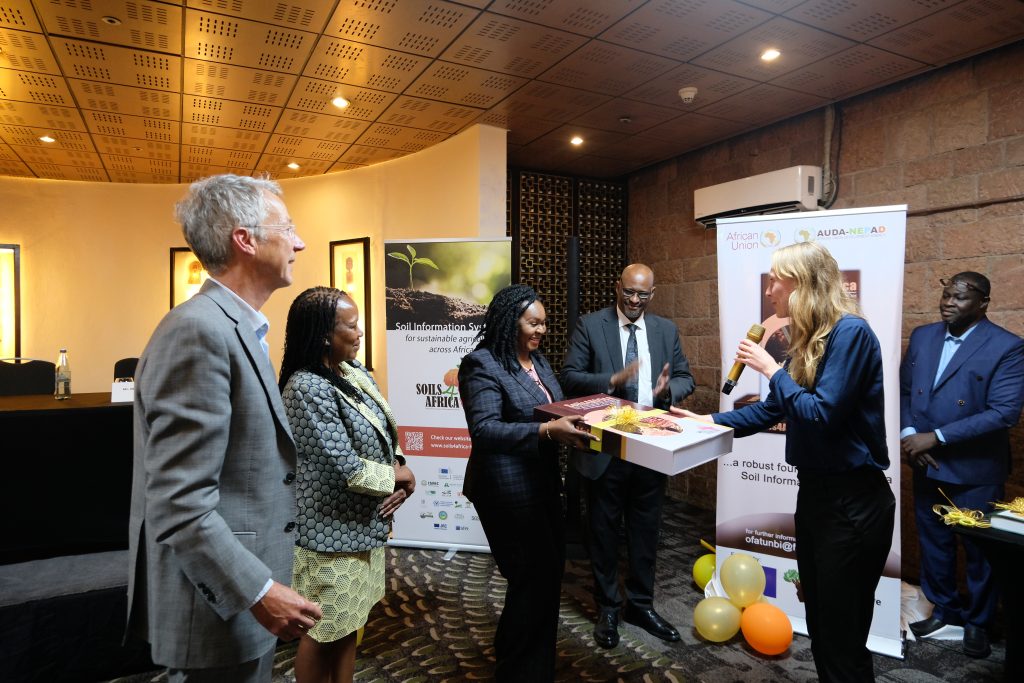
Dr. Elise van Eynde of the Joint Research Centre (JRC), handing over the emblem of the Soil Information System to the African Union,
In a well-animated handover ceremony, the European Union representative at the occasion, Dr. Elise van Eynde of the Joint Research Centre (JRC), handed over the emblem of the Soil Information System to the African Union, reaffirming the EU’s commitment to the AU-EU partnership for agricultural research and development. While receiving the emblem on behalf of the African Union, Madam Bongiwe Njobe expressed FARA’s commitment to host the continental Soil Information System and rally stakeholders to develop it into a fully functional instrument that serves African needs and interests.
For more information:
Prof. Wole Fatunbi ([email protected])
Benjamin Abugri ([email protected])



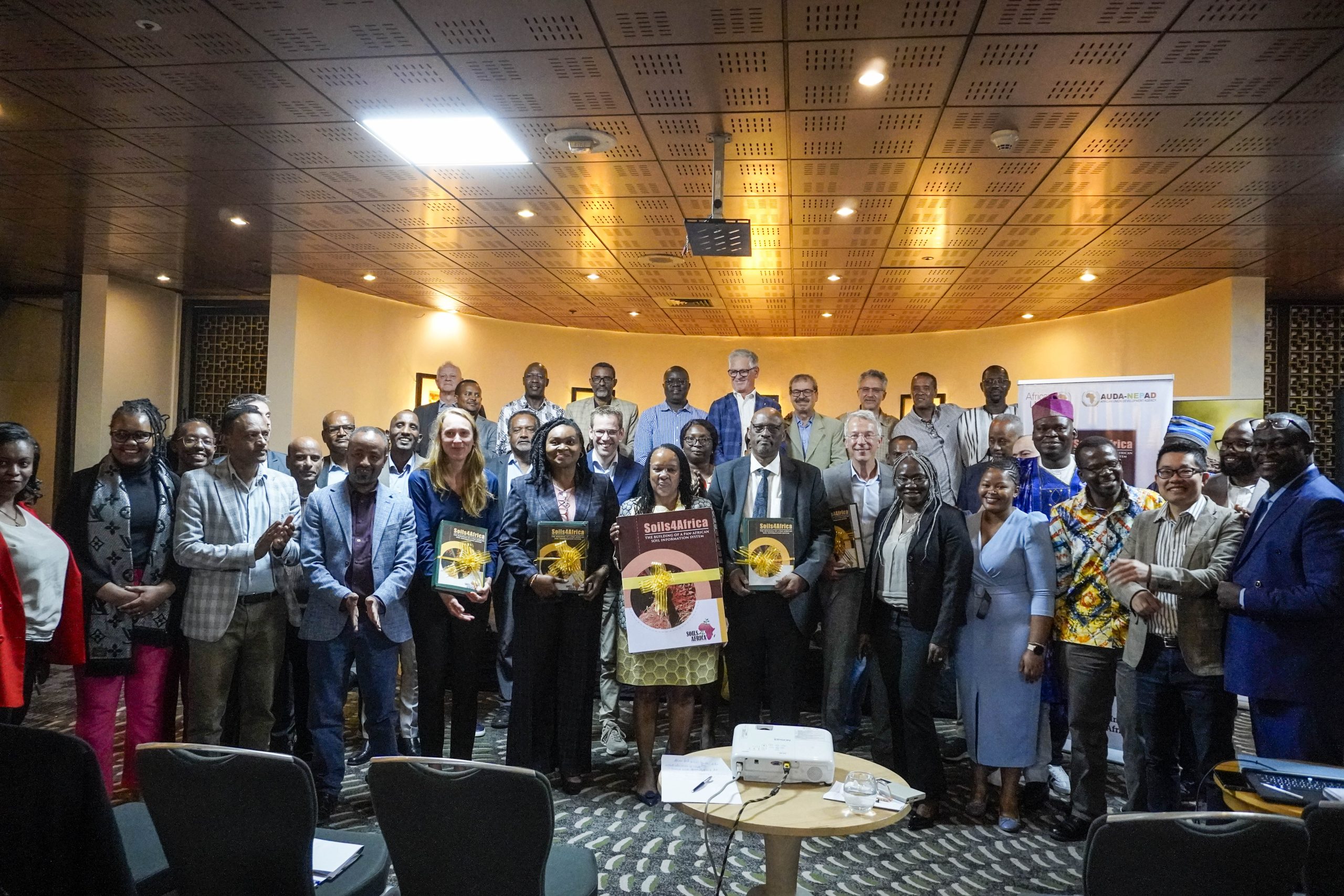

Leave A Comment